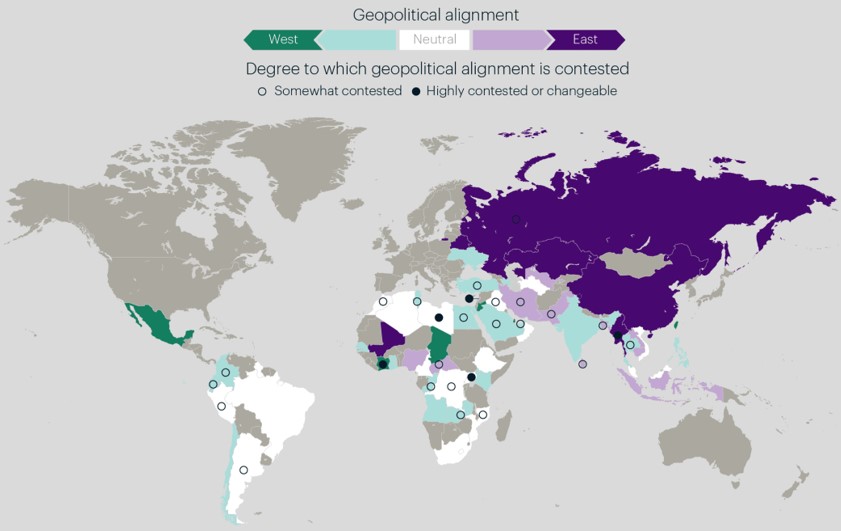Shifting geopolitical alignments are contributing to a division amongst opposing blocs across the globe, according to the latest WTW/Oxford Analytica Political Risk Index.
Published today, the latest Index shows the Western bloc as having lost ground in all world regions. Five years ago, 30 countries were in the Western bloc, with 13 of these countries strongly allied to the West. Today, however, just 6 countries or territories in the Index rate as strong Western allies (including Jordan, Mexico, Qatar and Taiwan), while 7 are rated as leaning strongly East (including Belarus, China, Mali, Myanmar and Russia).
In total, of the 61 countries and territories listed in the WTW Political Risk Index, 25 lean West, towards the US and/or Europe; 18 lean East, opposing the Western powers on many key issues; and another 18 are “attempting to remain neutral”.
In countries that shifted East (from neutrality or a Western alignment) over the past five years, on average, expropriation risks rose by 7%, economic freedom declined by 4%, and political rights fell by 10%. In “dealigning” countries, each of these risk indicators also worsenedand the dealignment trend is impacting more countries. These rising risks in part reflect the declining influence of the US and its allies.
Sam Wilkin, director of political risk analytics, WTW, said “The findings suggest that countries such as Turkey, Saudi Arabia, Pakistan, Cameroon and Uganda are ‘dealigning’ from the West. The West’s declining influence in the emerging world will create yet more risks for globalised business.”
Countries and territories are selected for inclusion in the Index based on volumes of foreign investment and levels of political risk.
Chart depicts shift in global geopolitical alignment (Source: Oxford Analytica)
Printed Copy:
Would you also like to receive CIR Magazine in print?
Data Use:
We will also send you our free daily email newsletters and other relevant communications, which you can opt out of at any time. Thank you.











YOU MIGHT ALSO LIKE